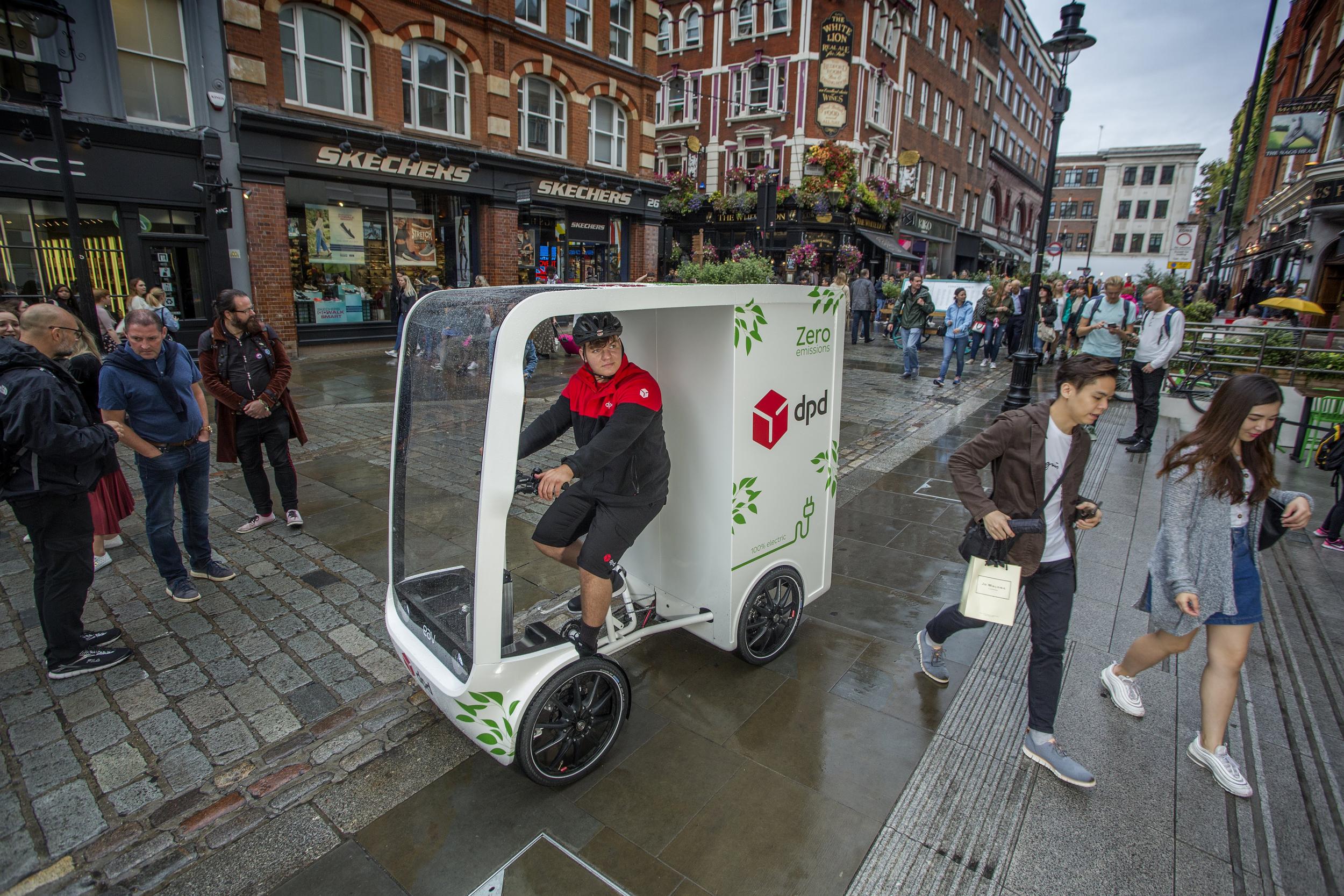Pollution solution: the greenest way to deliver your parcel
‘Realistically, the P1 can move as fast or faster than a traditional van through many cities because of the different routing it can take.’ Sean O’Grady on a new green machine

Is it a van? Is it a bike? Is it a joke?
Well, none of those, really. Meet the EAV P1, a British-built electrically assisted “cargo bike”, developed by the Electric Assisted Vehicles company of Upper Heyford, Oxfordshire. The first 10 of these innovative green machines are going into service with the DPDgroup parcel delivery and courier firm (an arm of the French Post Office, la Poste). These new delivery vehicles and their intrepid drivers/riders will be trialled in London, Newbury and York, as well as at DPD business units in Ireland, Spain, Germany, Portugal and France.
The benefits are obvious. There’s no diesel or petrol pollution from the “bio-mechanical” mechanism, so it is a zero emission at source vehicle, and is ideally suited to the increasing number of cities declaring themselves carbon neutral or, like Bristol, diesel-free. For the riders the environment is a little drier and more comfortable than a bike, and with added security and some better safety.
The purpose-built, environmentally focused quadracycle measures 2m long by 1m wide, weighs 120kg and can carry a 120kg payload. The 250 watt electric motor helps the rider accelerate to an initial 6kph (3.7mph) on a boost/hill start assist button and then on to a maximum pedal-assisted 25kph (15mph). The P1 can cover a range of up to 60 miles in a day and over 100 parcel stops and then be recharged using a normal 13amp, 240v plug socket. Batteries can also be swapped to keep the P1 in constant operational use but are fully charged in under 6 hours. Provided they are recharged using renewable energy, the environmental impact of the machines is negligible.
The bike’s body is made from advanced composites which include the latest fully recyclable materials; for example, the fascia is made from a composite strengthened with hemp fibres bonded together with a resin based on the oil from cashew nut shells.
Adam Barmby, founder and technical director at EAV, commented: “It has been fantastic to work alongside DPD and to see our vision for the P1 realised. It is classed as a cargo e-bike, but really, we started from scratch and reimagined an entirely new type of vehicle to operate within the parameters of today’s urban delivery market. It is a modular design, so we can extend or shorten the chassis and change the cargo configuration to fit the brief. In addition to the design flexibility, there is also a whole new set of efficiencies that we are tapping into here. Realistically, the P1 can move as fast or faster than a traditional van through many cities because of the different routing it can take.”
For DPDgroup, Dwain McDonald, chief executive added: “The P1 is an absolutely amazing vehicle and we are immensely proud to be technical partners alongside EAV on this unique project. This is an entirely new type of vehicle and is designed specifically to meet the current challenges for delivery firms in the urban environment. The early trials show that the P1 is performing really well and clearly has potential to be more efficient for us than traditional vans in certain locations.
“It is highly manoeuvrable, can carry a good day’s worth of parcels and can often get closer to delivery addresses than the vans. We know that the environment and climate change matter more than ever to our clients and the feedback we get when we share our EV vision with them is really positive.”
EAV Limited was set up in 2018 by a group of ex-F1 and aerospace engineers and automotive executives, to design and build zero emissions commercial and personal transport vehicles to be manufactured in the UK. EAV also uses biodegradable composite bodywork and a simple-to-recycle mild steel chassis and major componentry.
Subscribe to Independent Premium to bookmark this article
Want to bookmark your favourite articles and stories to read or reference later? Start your Independent Premium subscription today.

Join our commenting forum
Join thought-provoking conversations, follow other Independent readers and see their replies